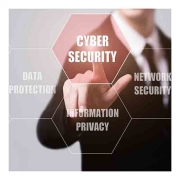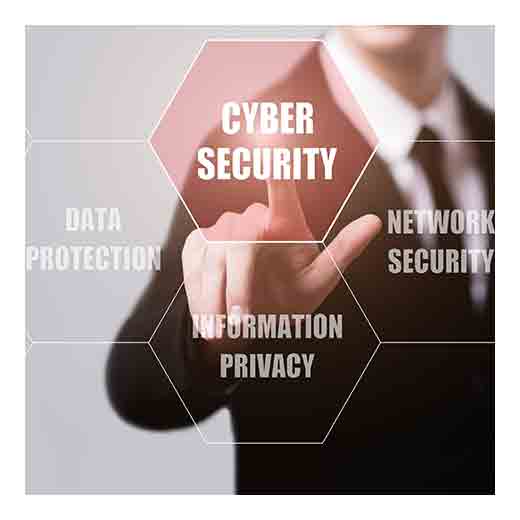Cyber Security 101
Summary:
- Change your default settings: usernames, passwords, and Wi-Fi network names;
- Randomly generate long passwords for maximum security;
- Use offline storage devices for optimal sensitive information security;
- Ensure you connect to the correct network when in public;
- Always keep your devices up-to-date;
- Use a VPN for public Wi-Fi use;
- If you must, only give sensitive information on websites with an HTTPS connection.
Today’s world is less than ever defined by the features, restrictions, and demands of the physical world. Where the processes of evolution placed geographical, time, and species barriers between us in the past, humanity has developed a virtual world in which nothing like the constraints of the world for the last 4 billion years obtains. We can see anywhere, talk with anyone, and create or purchase anything we want, at any time. The only barrier to entry is a modern technological device, which, if you don’t have a computer, can typically be found at any library in America. All this to say: our lives are becoming as much of an online presence as a physical reality.
What does this mean in terms of stability, security, and identity? Much e-ink is spilled over these questions. Today we just want to look at the basic components of online security. As you follow the tips below, you can rest assured in the knowledge that you have ground beneath your feet when you’re online, and have taken the appropriate measures to thrive in this new, virtual environment.
A Secure Connection at Home
Many believe home network security is taken care of by their internet service providers (ISPs). When consumers purchase routers from ISPs, the belief is that these routers come already pre-set with the best security settings. Unfortunately this simply is not the case. The main reason is because the factor default settings on routers can be discovered by hackers and stored in data tables for later retrieval. As a result, network home security can be improve dramatically simply by tweaking a few settings.
Passwords
How to create and store passwords is an often overlooked topic, though it couldn’t be more important for people who are connected to the internet daily. The best thing to do is randomly create a password for every login and use a password manager to store them all in the same place. As “How to Create and Securely Store Strong Passwords” explains, “Human behavior, even faulty behavior, follows certain patterns and rules. So the main thing is to create a password that will come to you unnaturally and will require memorization. Secure passwords have plenty of things in common: they are long, distinctive, involve a character mixture, and avoid hints and references to our personal lives.”
To begin your foray into the complex world of internet security, begin it on the right foot, by creating, using, and storing strong passwords in secure environments.
Storage
Since everything is online, you can of course use free programs like Google’s Drive to store sensitive information like passwords, financial information, and the like. Cloud services like the Drive are useful to many because they provide instant access to documents so long as the user has an internet connection. With Drive, you can access your documents from any device, at any time.
But with internet companies now selling data to advertisers and bad actors, it’s difficult to know how your information will be used. Luckily, there is a way to store information without exposing it to advertisers and hackers. External hard drives have quite a few benefits: “With an external hard drive you can add a password protection. Another advantage is you won’t have your financial documents directly on the computer designated for everyday use. This will keep your sensitive files out of the hands of hackers and, maybe, your children. You won’t have to worry about accidentally sending the files or deleting them, as they’ll always be on the external hard drive, which you can disconnect from all devices when you don’t need access to the files stored there.”
Sometimes the best way to stay connected with your most sensitive information is to keep it disconnected from public spaces and services that are liable to be hacked or used by other people without your knowledge. A good way to disconnect your information is to keep it on an external hard drive.
Wi-Fi Router
There are many steps you can take to completely secure your Wi-Fi router, here we will just focus on a few. Most importantly, change your Wi-Fi’s name and password. This step may seem negligible, but there is more at stake than many people believe. The Rainbow Tables hackers use to gain access to systems actually have millions of stock Wi-Fi router username/password combinations stored. It is actually relatively easy to login to a router if the default username/password combination is used.
Similarly, you will want to disable Wi-Fi access to your router admin panel. Just as Wi-Fi username/password combinations are stored in Rainbow Tables, so are router admin username/passwords. There are actually websites that store factory username/password combinations for anyone to look-up. If somebody knows your router model, they can login to your admin panel through your wireless network and change all your settings, passwords, and restrict access to your network. As simple as it seems, changing your router’s username and password combination is one of the best ways to improve your home network security.
Tips for Public Internet Use
As public access to Wi-Fi networks grows, so do the security risks and threats. Many ordinary attempts at hacking your device comes through the “middle man attack” technique, when hackers use seemingly legitimate Wi-Fi network names like “HiltonGuests” to trick people into signing onto their networks, where they can then see all your device data. Although there are many ways in which to improve your public cybersecurity, below are just a few that will get you on the right foot.
Always Update
For as big of an inconvenience updating your device can be at times, keeping your device up-to-date can be one of the most important steps you can take in the fight against cyberattacks. As the security firm McAffee points out, the major Equifax data breach, which exposed the sensitive information of over 143 million Americans, could have been prevented with just a simple update: “A fix for this security hole was actually available two months before the breach, but the company failed to update its software. This was a tough lesson, but one that we can all learn from. Software updates are important because they often include critical patches to security holes.”
Use a VPN
After you double check your phone for recent updates, you’ll want to download a VPN. A virtual private network (VPN) is one of the safest ways to use the internet publicly, if you want to keep your data and your devices anonymous. Without a VPN, your information, including the public Wi-Fi router you are connected to, is open to anyone who might have the capability and know-how to listen in on your connection. Because the internet is a collection of servers and wires, and every action performed on the internet is performed through electrical signals and data packets, servers exchange this information to get you to the servers hosting the websites you want to connect to. This means that a lot of information about you can be in the open at multiple points of every connection.
A VPN encrypts your data with a secret code every time a connection is established to any server. This means that any information sent to any server is scrambled so that somebody trying to listen in cannot see what each data packet contains, unless they somehow unscramble it. VPNs can change their secret codes at random, making unscrambling nearly impossible. Secondly, VPNs actually work before the Wi-Fi network you are connected to can identify your device. This means that your location, your specific device IP, and which Wi-Fi network you are connected to all remains anonymous to any onlooker. VPNs are a really great way to stay anonymous in the virtual world, where privacy breaches occur regularly. And the Norton security firm offers one of the most cost effective VPNs on the market.
HTTPS Connection
A few years ago, the general belief was that HTTPS was only necessary for websites that stored and managed sensitive user information, like banks, ecommerce sites, and others. As Google has written, this is no longer the case, and perhaps never was. Because HTTPS encrypts data sent and received between a user’s browser and a website’s server, it masks user behavior. This is important, because although a visit to one unprotected website to play a game or read an article might seem benign, a hacker can expose your identity by piecing together behavior patterns. As Google notes, “For example, employees might inadvertently disclose sensitive health conditions to their employers just by reading unprotected medical articles.” This process is known as de-anonymization.
Conclusion
As we continue to move our businesses, personal lives, and social interactions online, privacy and security will become larger and larger concerns. Get ahead of the curve by staying up-to-date on best cyber security practices.




